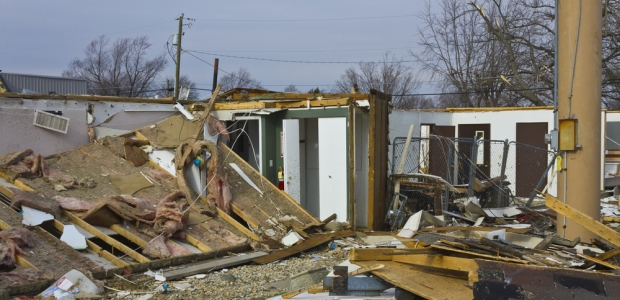
Manage Risk Rather than Disasters, UN Secretary-General Says
"An average of 24 million people are pushed into poverty every year by disasters. Many millions are forced to leave their homes. If vulnerable countries are in a constant struggle to rebuild and recover after catastrophic events, we will never achieve the 2030 Agenda for Sustainable Development," UN Secretary-General Antonio Guterres said.
The United Nations' secretary-general, António Guterres, marked this year's International Day for Disaster Reduction on Oct. 13 by calling on member states to manage risk and reduce victims' suffering, rather than concentrating on management of the disasters they experience.
Guterres noted that millions of people have been affected this year by drought, storms, earthquakes, landslides, and heat waves, citing in particular recent hurricanes affecting the Caribbean -- damage he saw firsthand during a visit last week.
"An average of 24 million people are pushed into poverty every year by disasters. Many millions are forced to leave their homes. If vulnerable countries are in a constant struggle to rebuild and recover after catastrophic events, we will never achieve the 2030 Agenda for Sustainable Development," he said in a statement. "On this year’s International Day for Disaster Risk Reduction, the challenge is to move from managing disasters themselves to managing disaster risk. Poverty, rapid urbanization, weak governance, the decline of ecosystems and climate change are driving disaster risk around the world. The Sendai Framework for Disaster Risk Reduction with its seven targets for the prevention of disasters and reducing disaster losses is essential to achieving the Sustainable Development Goals.
"We have had great success in reducing the number of lives lost to disasters, thanks to early warning systems, preparedness, and more efficient evacuations. Now we must focus on reducing human suffering and the number of people affected," he added. "Practical measures include relocating people from danger zones; implementing strong building codes; and preserving protective ecosystems. Reducing greenhouse gas emissions is fundamental. Climate change is driving the increased frequency and intensity of extreme weather events around the world. We need to show greater determination to implement the Paris Agreement, with greater ambition. The poor and most vulnerable, including women and girls, suffer disproportionately in disasters. Let’s put more effort into tackling disaster risk to create a safer, more sustainable world for all."